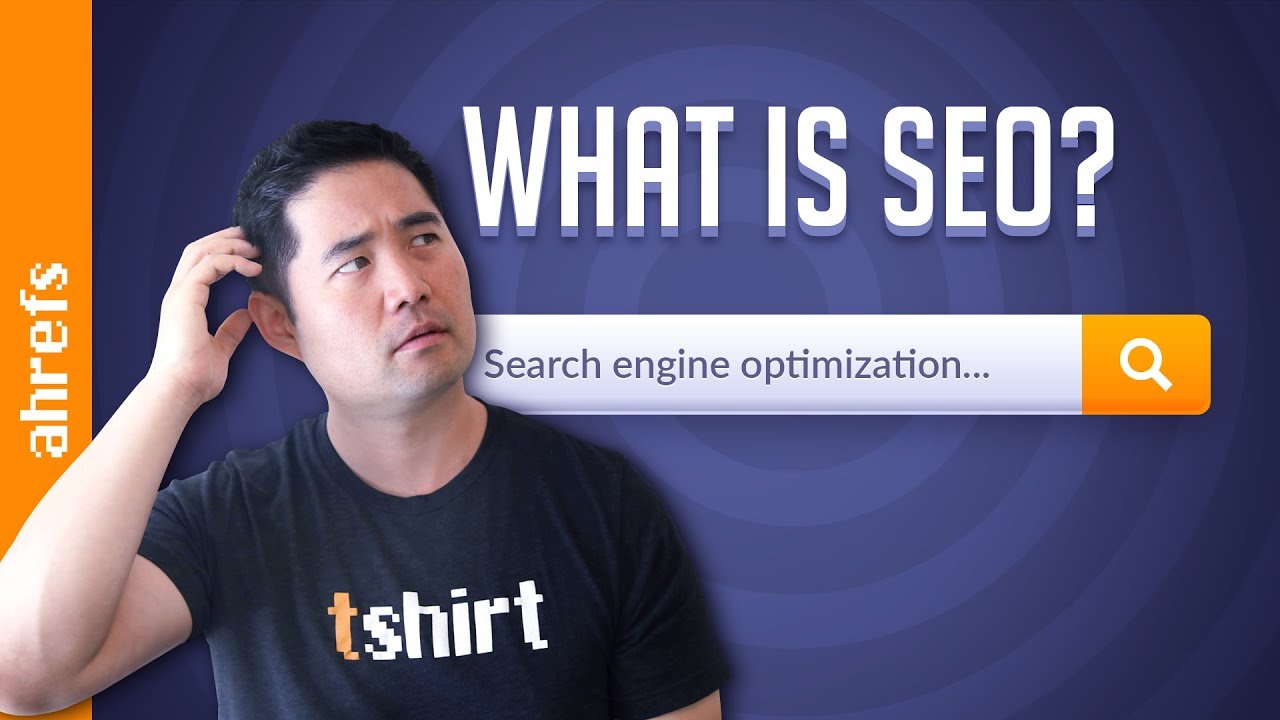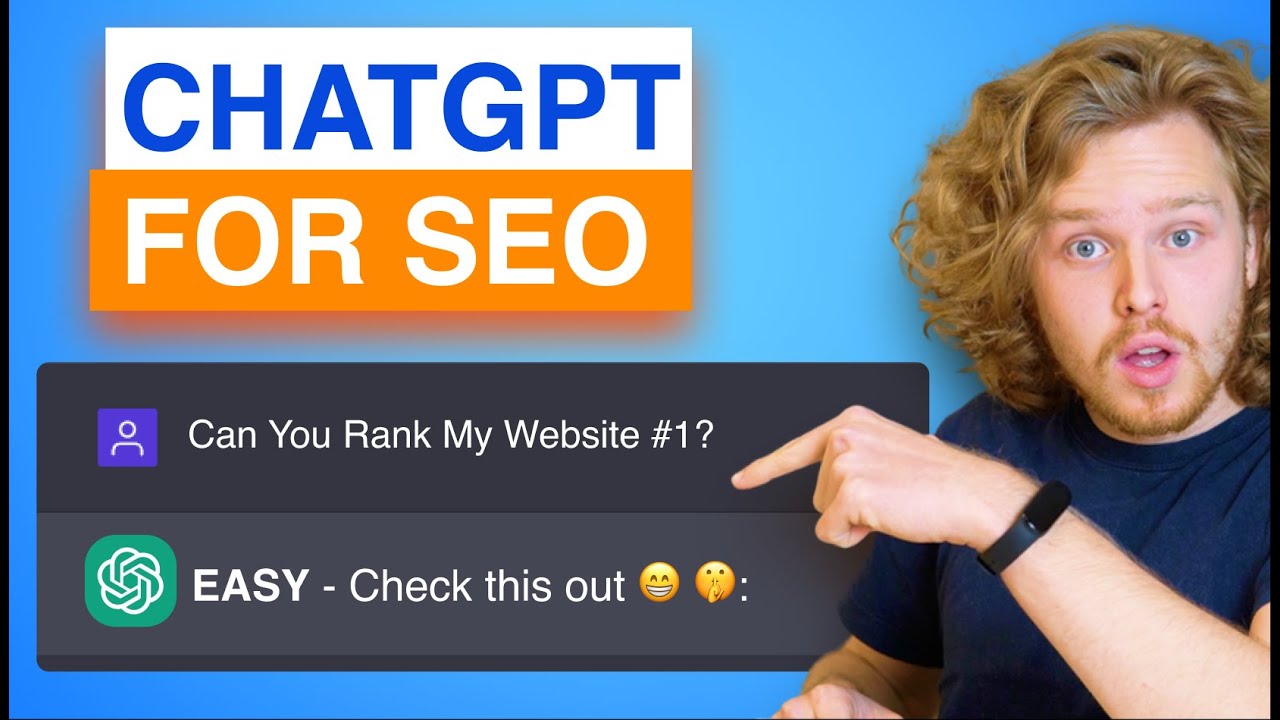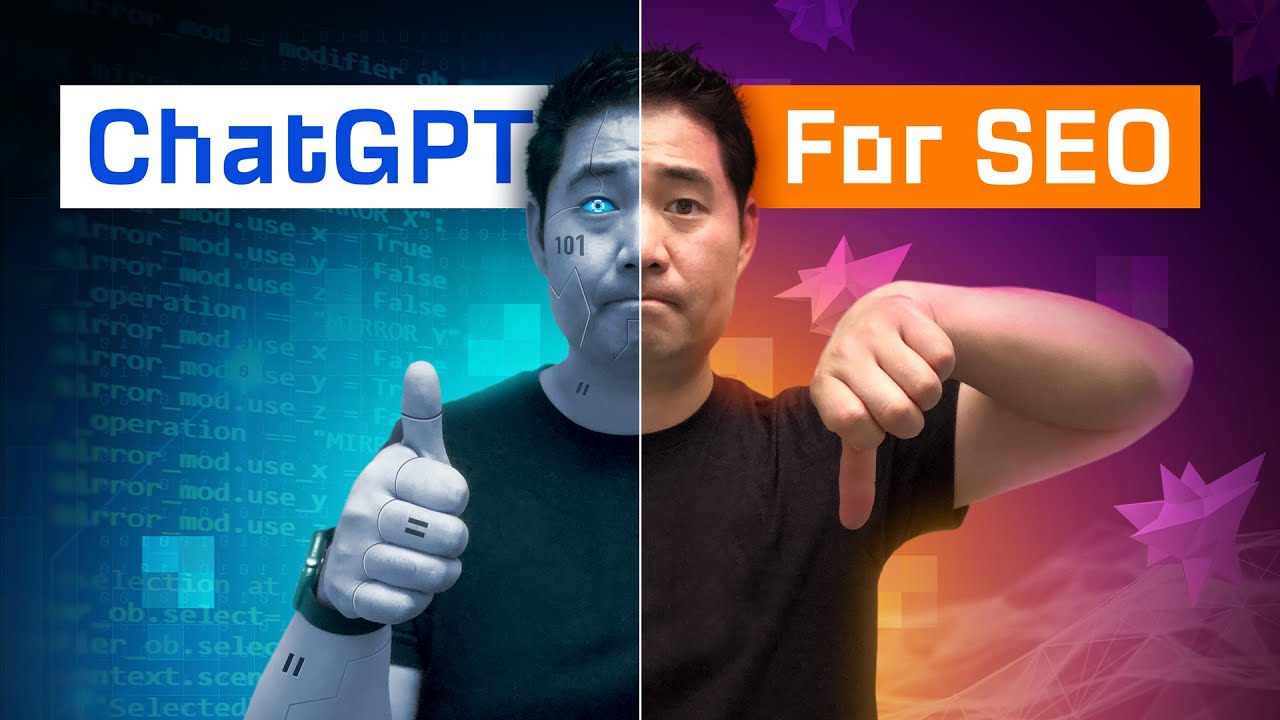In today's digital landscape, businesses, and contentcreators are constantly seeking effective strategies to optimize their online presence and reach their target audience. Two prominent approaches that have emerged are ChatGPT vs. Traditional SEO. While both aim to improve content visibility and engagement, they differ significantly in methodology and potential impact.
ChatGPT leverages advanced language models and AI technology to generate human-like text, while Traditional SEOfocuses on optimizing websites for search enginerankings. This article explores the distinctions between ChatGPT and Traditional SEO, highlighting their unique benefits and discussing how they can shape the future of content optimization.
What Is Traditional SEO?

What is SEO and How Does it Work?
Traditional SEO, also known as organic or natural SEO, refers to a set of strategies, techniques, and best practices used to optimize websites and improve their visibility in search engine results pages (SERPs). The goal of traditional SEO is to attract organic (non-paid) traffic from search engines by making the website more relevant, accessible, and authoritative.
Traditional SEO practices aim to enhance the website's relevance, authority, and user experience, aligning it with search engine algorithms' guidelines. By implementing these strategies effectively, websites can increase their visibility in search results, attract more organic traffic, and potentially improve their conversion rates.
How Does Traditional SEO Work?
Traditional SEO works by optimizing various aspects of a website to improve its visibility and rankings in search engine results pages (SERPs). Here is a breakdown of how traditional SEO works:
- Keyword Research -Traditional SEO starts with extensive keyword research. This involves identifying relevant keywords and phrases that users are likely to search for when looking for information or products/services related to a particular website.
- On-Page Optimization -On-page optimization involves optimizing individual web pages to make them search engine-friendly and relevant to target keywords. This includes optimizing meta tags (title tags, meta descriptions), headings, and URL structures, and incorporating keywords naturally within the content.
- Technical Optimization -Technical SEOfocuses on improving the technical aspects of a website to enhance its crawlability and indexability by search engines. This includes optimizing website speed, ensuring mobile responsiveness, fixing broken links, implementing structured data, and improving website architecture.
- Content Creationand Optimization -High-quality, relevant, and engaging content plays a crucial role in traditional SEO. Creating valuable content that meets the needs of the target audience and incorporating relevant keywords within it helps search engines understand the website's relevance and value.
- Link Building-Building high-quality backlinksfrom other reputable websites is an essential part of traditional SEO. Backlinks serve as "votes of confidence" for search engines, indicating that the website is trustworthy and authoritative. Link building involves outreach, guest posting, content promotion, and other strategies to acquire quality backlinks.
- Monitoring and Analysis -Traditional SEO requires ongoing monitoring and analysis to measure the effectiveness of the optimization efforts. This includes tracking keyword rankings, website traffic, and user engagement metrics, and making data-driven adjustments to further optimize the website.
The ultimate goal of traditional SEO is to improve a website's visibility in SERPs, attract organic (non-paid) traffic, and increase its chances of being found by the target audience. By implementing various SEO strategies and best practices, websites can improve their search engine rankings, drive more qualified traffic, and potentially achieve higher conversions and businessgrowth.
Pros And Cons Of Using Traditional SEO

Advantages & Disadvantages of SEO - Is SEO the right strategy for you?
Using traditional SEO has several advantages and disadvantages. Let's explore the pros and cons:
Pros Of Traditional SEO
- Increased Organic Visibility -Effective implementation of traditional SEO techniques can improve a website's visibility in search engine results pages (SERPs), leading to increased organic traffic. This can help businesses reach a wider audience without relying solely on paid advertising.
- Long-Term Results -Unlike paid advertising that stops generating traffic once the budget is exhausted, traditional SEO can provide long-term benefits. With consistent optimization efforts, a website's search engine rankings and organic traffic can continue to grow over time.
- Credibility and Trust - High search engine rankings achieved through traditional SEO can build credibility and trust among users. People tend to trust websites that appear prominently in search results, increasing the likelihood of engagement and conversions.
- Cost-Effective -Traditional SEO can be cost-effective compared to other marketing strategies like paid advertising. While there may be initial investments in SEO tools and expertise, the ongoing costs are typically lower, making it an attractive option for businesses with limited budgets.
- Targeted Traffic -By targeting specific keywords and optimizing content accordingly, traditional SEO helps attract highly relevant traffic. This means that the visitors coming to the website are more likely to be interested in the products, services, or information being offered, increasing the chances of conversions.
Cons Of Traditional SEO
- Time-Intensive -Traditional SEO requires consistent effort and time investment. It can take months or even longer to see significant results, especially in competitive niches. Patience and ongoing optimization efforts are necessary to achieve desired outcomes.
- Algorithm Changes -Search engine algorithms are constantly evolving, and major algorithm updates can impact search rankings. This means that SEO strategies that worked in the past may become less effective or even counterproductive, requiring adjustments and staying up-to-date with industry trends.
- Competition - As traditional SEO is widely adopted, competition for search engine rankings increases. It can be challenging to outrank established competitors with strong SEO strategies and high domain authority, especially in highly competitive industries.
- Technical Expertise -Traditional SEO requires a solid understanding of technical aspects such as website optimization, coding, and server configurations. It may be necessary to consult or hire SEO professionals or invest in learning SEO skills to effectively implement optimization techniques.
- Dependency on Search Engines -Traditional SEO relies on search engines to drive traffic. Changes in search engine algorithms, penalties, or ranking fluctuations can have a direct impact on a website's visibility and organic traffic. Diversification of traffic sources is essential to mitigate this risk.
It's important to weigh these pros and cons while considering traditional SEO as a part of your overall marketing strategy. Assessing your goals, resources, and competition will help determine whether traditional SEO aligns with your businessobjectives and whether it's the right approach to invest in for long-term success.
What Is ChatGPT For SEO?

How Top 1% SEO Pros Use ChatGPT
ChatGPT is an advanced language model developed by OpenAI that utilizes artificial intelligence and deep learning techniques to generate human-like text based on given prompts. While ChatGPT is not specifically designed for SEO, it can be utilized as a tool to assist in various aspects of search engine optimization.
ChatGPT can support various aspects of SEO, it should be noted that it does not replace the fundamental principles and strategies of traditional SEO. ChatGPT can serve as a valuable tool within an overall SEO strategy, providing assistance and enhancing content creation and optimization processes.
How Does ChatGPT For SEO Work?

ChatGPT for SEO - Master the AI for SEO Success
ChatGPT can be utilized in several ways to support SEO efforts. Here's how ChatGPT can work for SEO:
- Content Generation - ChatGPT can assist in generating high-quality content for SEO purposes. By providing relevant prompts or topics, ChatGPT can generate human-like text that aligns with SEO best practices, incorporates keywords, and provides valuable information to engage users and improve search engine rankings.
- Keyword Research- ChatGPT can be prompted with seed keywords or topics to generate additional keyword ideas. It can provide alternative keyword suggestions, long-tail keywords, or related keyword phrases that can be used for content optimization and targeting specific search queries.
- Content Optimization -ChatGPT can help optimize existing content by suggesting improvements or alternative phrasings. By inputting a piece of content, ChatGPT can provide suggestions to enhance readability, incorporate keywords naturally, and improve on-page SEO elements like meta tags, headings, and descriptions.
- User IntentAnalysis -ChatGPT's natural language understanding capabilities can aid in analyzing user intent behind specific queries. By inputting user queries, ChatGPT can provide insights into the underlying intent and help optimize content to align with user needs, improving the chances of ranking for relevant search queries.
- Content Promotion -ChatGPT can generate social mediaposts, ad copy, or promotional content that adheres to SEO guidelines. It can assist in crafting compelling and shareable content to increase brand visibility, attract backlinks, and drive organic traffic to the website.
To use ChatGPT for SEO, you can interact with the model through an API or a user interface that integrates the ChatGPT language model. By providing specific prompts or inputs related to your SEO needs, you can receive generated text or suggestions from ChatGPT to enhance your content creation, optimization, and promotional efforts.
Pros And Cons Of Using ChatGPT For SEO

ChatGPT for SEO: Best (and Worst) Use Cases
Using ChatGPT for SEO can offer various benefits, but it also has its limitations. Here are the pros and cons of using ChatGPT for SEO:
Pros Of Using ChatGPT For SEO
- Content Generation -ChatGPT can assist in generating high-quality and engaging content, saving time and effort in the content creation process. It can help produce valuable content that aligns with SEO best practices, incorporates keywords, and caters to user intent.
- Creativity and Fresh Perspectives -ChatGPT's language generation capabilities can provide fresh perspectives and creative ideas for content. It can offer unique insights or alternative phrasings, helping to avoid content monotony and providing a fresh approach to optimize for search engines.
- Keyword Ideas and Research -ChatGPT can suggest additional keywords or long-tail keyword variations, aiding in keyword research and expanding the scope of targeted search terms. It can provide new keyword ideas to optimize content and capture niche or trending topics.
- Content Optimization Assistance -ChatGPT can help optimize existing content by suggesting improvements in readability, grammar, or structure. It can assist in fine-tuning on-page optimization elements, such as meta tags, headings, and descriptions, for improved search engine visibility.
- Enhanced User Experience -ChatGPT can contribute to improving user experience by generating engaging and informative content that aligns with user intent. This can lead to longer user sessions, lower bounce rates, and increased chances of conversion.
Cons Of Using ChatGPT For SEO
- Lack of Domain Expertise -ChatGPT lacks domain-specific knowledge and context. It may generate content that appears accurate but may contain inaccuracies or outdated information. Human review and verification of generated content are necessary to ensure accuracy and relevancy.
- Limited Control Over Output -ChatGPT's responses are generated based on patterns it has learned from training data. It may occasionally produce irrelevant or nonsensical responses, requiring manual filtering and refining of the generated content.
- Dependency on Training Data -The quality and bias of the training data used to train ChatGPT can impact the generated output. Biases and limitations present in the training data may inadvertently influence the generated content, necessitating human oversight and correction.
- SEO-Specific Knowledge Required -While ChatGPT can generate content, it does not possess inherent SEO knowledge. Users need to have a solid understanding of SEO principles and best practices to effectively utilize ChatGPT for optimizing content and incorporating generated suggestions.
- Risk of Over-Reliance -Relying solely on ChatGPT for SEO can overlook the importance of human expertise and diverse perspectives. It is crucial to balance the use of ChatGPT with human review, editing, and strategic decision-making to ensure the best possible SEO outcomes.
When using ChatGPT for SEO, it is important to consider these pros and cons and make informed decisions. Combining the strengths of ChatGPT with human expertise and traditional SEO practices can yield the best results in terms of content optimization and search engine rankings.
The Role Of Traditional SEO In The ChatGPT Era

This ChatGPT Prompt just made Google SEO 10x Easier!
Traditional SEO continues to play a crucial role in the ChatGPT era, as it provides a solid foundation and framework for optimizing websites for search engines. While ChatGPT can assist in certain aspects of SEO, traditional SEO practices remain essential for achieving long-term success. Here's the role of traditional SEO in the ChatGPT era:
- Keyword Research and Targeting -Traditional SEO techniques, such as keyword research, remain vital in understanding user search intentand identifying relevant keywords. While ChatGPT can provide keyword suggestions, traditional SEO ensures comprehensive keyword analysis, competition assessment, and effective keyword targeting.
- Content Optimization - Traditional SEO provides a systematic approach to optimizing content for search engines. It involves on-page optimization techniques such as incorporating relevant keywords, optimizing meta tags, and headings, and ensuring proper content structure. Traditional SEO ensures that content aligns with best practices and user expectations, while ChatGPT can aid in generating alternative phrasings or suggestions for content optimization.
- Technical SEO-Technical optimization remains critical in ensuring that websites are crawlable, accessible, and indexable by search engines. Traditional SEO encompasses various technical aspects, including website speed optimization, mobile responsiveness, URL structure, XML sitemaps, and proper implementation of structured data. These technical elements are fundamental for search engine visibility and user experience.
- Link Building and Authority -Traditional SEO emphasizes the importance of building high-quality backlinks from reputable websites to establish authority and improve rankings. While ChatGPT can aid in content generation, traditional SEO strategies like outreach, guest posting, and relationship building are essential for acquiring relevant and authoritative backlinks.
- Monitoring and Adaptation -Traditional SEO involves continuous monitoring and analysis of key metrics like keyword rankings, organic traffic, user engagement, and conversions. It allows for data-driven decision-making and adjustments to SEO strategies. While ChatGPT can assist in generating content and suggestions, traditional SEO ensures ongoing optimization and adaptation based on performance insights.
- Compliance with Search Engine Guidelines -Traditional SEO ensures adherence to search engine guidelines and best practices. Staying up-to-date with algorithm changes, avoiding black hat tactics, and maintaining ethical SEO practices are crucial to long-term success. ChatGPT-generated content should align with these guidelines to maintain search engine visibility and user trust.
Which Approach Is Best For Your Business?
Determining the best approach for your business depends on various factors, including your specific goals, resources, and the nature of your industry. Both ChatGPT and traditional SEO have their strengths and can be valuable for different aspects of your business's online presence. Consider the following factors to determine the best approach:
- Content Generation and Optimization -If your business requires frequent content creation and optimization, ChatGPT can provide assistance in generating ideas, alternative phrasings, and suggestions. It can be particularly beneficial if you have limited resources or need to streamline your content creation process. However, traditional SEO practices ensure comprehensive keyword research, user intent analysis, and adherence to SEO guidelines, making it essential for effective content optimization.
- Technical Optimization -If your website requires significant technical improvements, traditional SEO practices should be prioritized. Technical SEO ensures your website is crawlable, indexable, and accessible to search engines. While ChatGPT can generate content for technical guides or explanations, it does not directly contribute to technical optimization.
- Keyword Research and Targeting -Both ChatGPT and traditional SEO can be valuable for keyword research. ChatGPT can provide additional keyword ideas and variations, while traditional SEO techniques help assess keyword competition, search volume, and intent. Consider your specific needs and resources to determine which approach aligns best with your keyword research goals.
- Link Building and Promotion -Traditional SEO techniques excel in link-building and promotion efforts. Outreach, relationship-building, and guest posting strategies are fundamental for acquiring authoritative backlinks. While ChatGPT can generate content for social media or promotional material, it does not replace traditional SEO methods for link building.
- Human Oversight and Quality Control -Both ChatGPT and traditional SEO require human oversight and quality control. While ChatGPT can assist in content generation, it is essential to review and edit the generated content to ensure accuracy, relevancy, and alignment with your brand voice. Traditional SEO practices emphasize the importance of human expertise in assessing content quality and optimizing it for search engines.
People Also Ask
Is ChatGPT Replacing Traditional SEO?
ChatGPT and Traditional SEO serve different purposes. While ChatGPT enhances content creation and user engagement, Traditional SEO focuses on optimizing websites for search engine visibility and rankings.
How Does ChatGPT Impact Search Engine Rankings?
ChatGPT itself does not directly impact search engine rankings. However, by generating engaging and relevant content, ChatGPT can indirectly contribute to improved user experience, which can positively influence SEO rankings.
Can ChatGPT Replace Keyword Research In Traditional SEO?
ChatGPT can assist with generating content ideas and understanding user intent, but keyword research remains crucial for Traditional SEO. Identifying relevant keywords helps optimize content and improve its visibility in search engine results.
Does Traditional SEO Still Matter In The Age Of ChatGPT?
Traditional SEO continues to play a significant role. While ChatGPT enhances content creation and engagement, Traditional SEO ensures that content is structured, optimized, and accessible to search engines, helping it reach the intended audience effectively.
Conclusion
As the digital landscape continues to evolve, the debate between ChatGPT vs. Traditional SEOas content optimization strategies intensify. While Traditional SEO remains crucial for search engine visibility and organic reach, ChatGPT introduces innovative opportunities for personalized and interactive content creation.
Rather than viewing them as competing strategies, businesses should recognize the synergy between ChatGPT and Traditional SEO. By integrating the strengths of both approaches, content creators can enhance user experiences, improve search engine rankings, and ultimately drive long-term success.